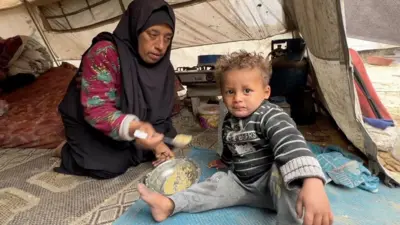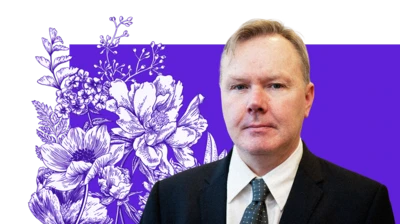We've updated our Privacy and Cookies Policy
We've made some important changes to our Privacy and Cookies Policy and we want you to know what this means for you and your data.
Tunisia one year on: New trend of self-immolations
Top Stories
Tunisia's long-time president resigned a year ago in the wake of nationwide protests, which began after the self-immolation of a young market trader. The ┤¾¤¾┤½├¢'s Wyre Davies has uncovered alarming statistics which show there has been a huge rise in the number of people setting themselves on fire in Tunisia, despite the advent of democracy.
They are mostly young men from poor, rural areas. They are also, generally, unmarried and have only basic education. Most importantly they are out of work and, despite strenuous efforts, they have little prospect of employment.
These are the young Tunisians who set themselves alight or self-immolate. They are acts of sheer desperation that usually lead to death within 48 hours or, if they survive, a life of agony for the men and their families.
The Tunisian revolution was, famously, initiated by the suicide of Mohamed Bouazizi, a young man in a provincial town who set himself alight in front of the town hall in protest at petty corruption and his inability to make a living.
In the six months immediately after Bouazizi's death (he took two weeks to die from his injuries) at least 107 fellow Tunisians tried to kill themselves by setting themselves on fire.
Top Stories
'I've destroyed my life'
Top Stories
At the main Trauma and Burns Centre in Tunis I met Hosni - a young man from Gasserine. He was so desperate for work that, like Bouazizi, he poured petrol over himself and lit a match. Hosni survived but has terrible injuries.
There are no fingers remaining on his right hand, he has severe facial disfigurement and will need medical attention for the rest of his life.
"I had no education, no job and was desperate," Hosni told me in a surprisingly clear voice for someone whose situation seemed so dire.
"The whole country seemed to be on fire, so I set myself alight too, but it hasn't made things any better. I've destroyed my life and that of my family."
Previously unpublished statistics seen by the ┤¾¤¾┤½├¢ show that, in the year since the revolution, there has been a five-fold increase in the number of people setting themselves alight across Tunisia.
It is an alarming statistic that threatens to undermine many of the positive gains made in last year's popular uprising.
Amenallah Messaadi is the man who has collated the figures and is head of the Burns Centre.
"This act [of self immolation] gained notoriety because of what Bouazizi did but it doesn't solve any problems, it only makes things worse for the victims and their families," the doctor told me.
Life of torment
Across Tunisia, somehow inspired by the story of Bouazizi or driven to desperation by the continued lack of economic opportunity, there are still cases of people pouring petrol over themselves and suffering the consequences.
More often than not they have complained, without success, to the local authorities about corruption or the lack of work.
Just along the corridor from where Hosni's terrible throat injuries were being dressed - many victims of self-immolation suffer agonising lung and internal chest injuries - another victim had been brought in and was fighting for his life.
At 40 years old, the unnamed man was a little older than most but in every other aspect he fitted the pattern - unemployed and (perhaps unrealistically) disillusioned that the revolution had not yet delivered real economic reform.
Mr Messaadi said the man would probably survive, but was now destined to a life of physical agony and psychological torment.
In the last week alone, at least three people - in towns from the north to the south of the country - have set fire to themselves. One, a father of three from the town of Gafsa, has already died after pouring petrol over himself in front of the municipal building.
Again, he was protesting at the lack of jobs for the country's underclass.
Mr Messaadi is clearly frustrated with what he calls "this bizarre phenomenon."
With no hint of irony he says people shouldn't glorify the act of self-immolation and "should stop adding fuel to the fire".
It has been a year since Tunisians overthrew Zine al-Abidine Ben Ali in a revolution that was as much about economics as it was about politics.
Many people expect that the employment situation will eventually improve.
In the meantime doctors urge people, as desperate as they may be, not to resort to self-immolation - an act that never, ever makes things better.
Top Stories
More to explore
Most read
Content is not available








